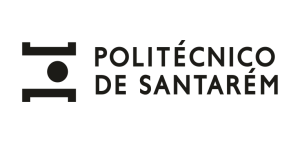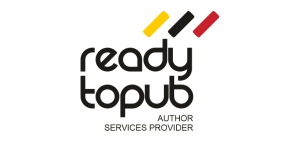WORKSHOPS
DESIGN THINKING BOOTCAMP
Full Day - (limited to 20 participants)
Design thinking is an activity-based training course towards solving “real-world” problems rooted in human empathy and conducted by collaborative multidisciplinary teams. Based on the Stanford d.school model of design thinking, the class will help you with strategies and outcome-based solutions to implement in your current job. During the training, attendees will experience/cover the following:
» The opportunity to explore a complex ecosystem on a white board and online collaborative tools.
» Be given challenges to analyze how products or processes work.
» Work collaboratively to build prototypes to examine how a product or process works so it can be evolved and improved.
» Work on the design thinking process and become immersed into the design thinking experience.
» Identify and apply the design thinking process to real problems and provide solutions to those problems.
AI Chatbot - Use and Design for Education
2 hours - (20 participants)
Format: Virtual workshop (delivered online from Singapore)
Learning Outcomes:
This workshop will introduce the purposes for using educational chatbots. It will briefly review the uses of AI chatbots in Temasek Polytechnic, Singapore that were trialed:
• EXCEL Bot: To learn Microsoft Excel (Skills) independently
• APA Bot: For correction of errors following APA style
• Social Media Analytics (SOMA) Bot: Supplementary content for appropriate software use
• Airline Management (ALMGT) Bot: Supporting project work (to run an airline).
Various features of the chatbot to support the various objectives would be highlighted. Participants will then begin by experiencing using one chatbot and discuss on how to integrate it into the classroom or use it for independent learning.
They will examine the key design principles and a chatbot design model to promote learning anytime anywhere, using self-regulated learning strategies. Finally, participants will also engage in a hands-on practice on how to transform chatbot logs to gain insights of students’ attempts at learning. All interactive activities will be conducted using online tools such as like ClassPoint and Padlet.
Who should attend:
This workshop is open to educators who are interested to harness the power of AI Chatbot to provide focused, personalised, learner-control online learning. It does not matter whether the participant is a tutor, module leader or course leader. Any prior experience will be tapped upon throughout the workshop to illustrate concepts and connect techniques to their roles in education.
Keywords: Chatbot, Self-regulation, Technology-enhanced learning, Engaged learning, Motivation
Augmented Reality with Wikitude and Unity
3 Hours - (limited to 15 participants)
Rationale
Augmented Reality (AR) and Virtual Reality (VR) have garnered much attention in recent years due to the rapid adoption of wireless, mobile and wearable technologies. The characteristics of AR + VR are strongly related with first-hand experience and the senses of presence, immediacy and immersion. These features enable students to engage cognitively and affectively and enhance the impact of the training experience. Creating 3D visualisations where physical and digital objects co-exist and interact in real time is already contributing to reshape education and professional training. This workshop introduces two of the most popular tools to create augmented reality: Wikitude and Unity, and provides a hands-on space where participants can learn the basics to build their own augmented reality apps.
Workshop Outline
Introduction to augmented reality in education Augmented reality with Wikitude *hands-on Introduction to Unity Installation, configuration and first steps with Unity *hands-on Augmented reality with Unity and Vuforia *hands-on Audience and format The participats in this workshop will gain understanding of augmented reality while being engaged in the construction of mobile apps. Programming code, graphics and animations for the exercises are provided or can be downloaded. The estimated time for completing the workshop is 2:30 to 3 hours. Maximum number of participants: 15.
In order to save download and installation time, it is highly recommended that participants already have Unity 2020.3.37f1 on their computers before attending the workshop. This can be done by either providing a room with PCs/laptops including Unity or sending attendees brief instructions on the days previous to the workshop.
EMOTIONAL METHODOLOGIES
3 HOURS - (limited to 20 participants)
More recent studies on social-emotional competences point to a re-signification of teaching processes that directly affect pedagogical dialogue, consequently modifying the ways of elaborating methodologies. In this case, we could speak of emotional methodologies, which associate conditions of well-being, comfort, relationships of belonging, to what is known about active methodologies, awakening new motivations and interests both for those who learn and those who teach.
How this workshop will be conducted: In a dynamic, interactive and creative way, starting from the analysis of small cases that imply teaching/learning proposals, the group of participants will be guided to formulate strategies integrating aspects such as: emotional literacy, self-awareness; self-management; empathy; social skills; “thinking” about consequences; interpersonal relationships when learning; good emotion and disturbing emotion; decision making, effort/distraction and well-being.
Methodological analysis of analogue game design for educational experiences
2 hours - (minimum 6 limited to 20 participants)
Description:
Modern analogue games are captivating growing audiences worldwide, resulting from continued design innovations and the unique experience of material tangibility (most in the last 30 years). Alternatively, mastering these games can also be used for prototyping new projects, either for new digital or hybrid platforms. In this workshop, participants will play several modern analogue games and apply the MACMEO experimental framework to identify the game systems and how they can be adapted to educational experiences. Through gameplay, participants will learn how to dissect game systems, experiential interactions and possible future applications for analogue and digital platforms. This workshop is a practical (hands-on) introduction to game design for purposes other than entertainment.
Goal: Introduction to game systems and serious games.
PEDAGOGIC VIDEO DESIGN PRINCIPLES
90 minutes - (limited to 40 participants)
Origin of the Workshop
Based on the workshop facilitator’s course, Scriptwriting for Effective Instructional Video, for the University of the Philippines OU. In that Course, two Lessons prepare students for their final Scriptwriting Project:
Lesson 1’s six videos analyse 42 video clips (from existing instructional videos) that exemplify 34 Potent Pedagogic Roles/Techniques, through which video can achieve learning objectives more effectively than other media:
1.
Facilitate COGNITION
1. composite images
2. animated diagrams
3. visual representation
analogy, metaphor
4. illustrating concepts
5. modelling
6. juxtaposition
7. condensing time
8. audio-track reinforce
9. narrative power
2.
Provide EXPERIENCES,
otherwise inaccessible
1. movement
2. viewpoints
3. places
4. 3D
5. slow/fast motion
6. people/animals interact
7. chronological sequence
8. resource material
9. rare events
10. staged events
3.
Nurture AFFECT
1. galvanize / spur
2. motivate a strategy
3. appetite to learn
4. change attitudes
5. alleviate isolation
6. reassure, self-efficacy
7. authentic abstractions
8. sense of importance
4.
Show SKILLS
1. manual/craft
2. agility
3. reasoning
4. interpersonal
5. expressive
6. studying
7. technical
The workshop starts with a quick taste of these Roles/Techniques, but fuller coverage will be for Lesson 2, where a
further six videos analyse 39 clips that illustrate 31 Pedagogic Video Design Principles:
Now that video is “easy” to produce, there is a proliferation of teaching/learning videos, but very little attention is paid to whether video is the most appropriate medium to achieve the professed objectives (the focus of Lesson 1’s distinctive video Roles/Techniques) – and MORE IMPORTANTLY very little attention is paid to Pedagogic Video Design Principles that are necessary to achieve the learning potential of the above Roles/Techniques. These are the 31 Principles, in the above 8 categories.
How the Workshop will be conducted
Following the brief taste of Lesson 1, the workshop facilitator will play a selection of the six videos in Lesson 2 of the UPOU Course and stop after each video to ask and answer questions, and to initiate discussion – mimicking the interactivity in the UPOU Course.
The whole content cannot be presented within 90 minutes; however, a Handout will summarise the missing content.
Objectives
Workshop Participants will be able to implement design principles to achieve the pedagogic potential of video.
References
The UPOU Course, and the derived workshop above, update the central content of the author’s book, Designing Video and Multimedia for Open and Flexible Learning, Routledge 2006/9.
1. HOOK (a. capture b. retain interest)
a) Shock / surprise / delight
b) Suspense, entertain, engross / appetise
2. SIGNPOST (what’s coming)
a) Set the scene
b) Signpost: what’s coming later
c) Chapter Heading: what’s next?
d) Heads-up: what to look out for
3. STIMULATE COGNITIVE ENGAGEMENT
a) Pose questions
b) Encourage prediction
c) Students’ personal relevance
4. ENABLE CONSTRUCTIVE LEARNING
a) Words NOT DUPLICATING pictures
b) Analogy and Metaphor
c) Scaffold construction of knowledge
d) Let students see the context
e) Concretise / Activate their knowledge
5. SENSITISE
a) Priming
b) Reassure / build confidence
c) Personalise the teacher
d) Music style & timing by design
e) Consistent style
6. ELUCIDATE
a) Vary tempo to indicate syntax
b) Enhance legibility/
audibility
c) Maximise Cognitive Clarity
d) Control pace, depth, breadth
7. REINFORCE
a) Repetition (with a new angle)
b) Re-exemplify
c) Words-image synergy
d) Compare / Contrast
e) Key-Word Text
8. CONSOLIDATE
a) Recapitulate
b) Summarise key features
c) Integrate associated materials
The State of Digitisation in the German Education Sector - An Overview
60 minutes - (limited to 50 participants)
The workshop gives an overview of the state of digitization in the German education landscape.
Johannes Schmied heads the editorial department of MedienLB, the German market leader for digital, audiovisual and interactive teaching media.
Main part of the Workshop is creating own interactive tasks with a very simple Program, called H5P.
– Needs for the Workshop:
- Beamer/Smartboard allowing a connection to a laptop
- Participants should have a Laptop/Tablet, that they can create own H5Ps














